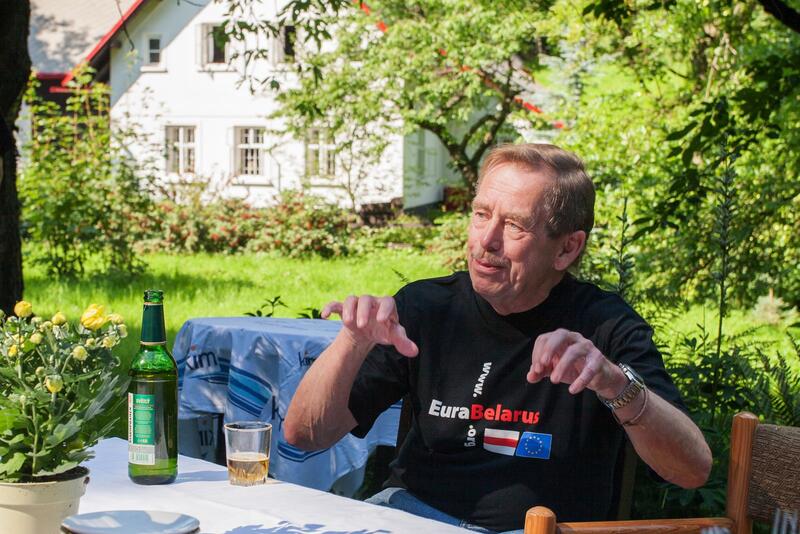
The event sparked much Hope in many who attended. And yet, I was also quite surprised by the final panel’s responses to moderator Mary Evelyn Tucker’s question: What brings you Hope? One panelist gave some examples of what helps him through the hard moments, but the others seemed to be expressing that they don’t believe in Hope anymore—action and commitment, but not Hope. And I couldn’t help but feel a deep sadness for them and that the heaviness of the work seemed to weigh on them significantly.
Through the years, I’ve seen quotes from Czech poet, playwright, and president Vaclav Havel on the subject of Hope, generally related to Hope being the knowledge that whatever happens is right or that Hope is found out of creating meaning in one’s life—certainly a worthwhile perspective that bears reflection. But about a month ago, I came across a passage in Rebecca Solnit’s Hope in the Dark, where she invokes an alternate quote by Havel regarding the topic of Hope:
Right there. That’s the whole point. This is what I’ve been trying to say, and what I think a lot of people in the world, and particularly in the environmental movement, have perhaps forgotten or don’t seem to understand. Hope is not prognostication. Most in our world use Hope like a magic genie or a deity to which they pray for what they desire in the future:
I hope that…
-humans wake up and change their behavior before it’s too late
-people can see past their differences and stop harming each other
-my daughter finds meaning and purpose in her life
-the weather is nice for our family outing
And so forth.
But this instrumentalizes Hope—in this context and use, it only has value for us if it gives us what we want. If our wish is not granted, we lose faith in it. But Hope has its own intrinsic value, apart from our instrumental desires. It is its own integral character in our story, individually, communally, globally. It is not our cosmic genie put here to deliver—Hope is the friend who sits with us in the dark, so we are not alone and shines for us so we can make it through. If we expect it to be more than this, we are doing it a disservice and we will always be crestfallen.
So, what would be my reply to the question “What gives you Hope?” Hope does. I have set up my living, work, and digital space so that I have sparks of Hope all around me—reminders and life preservers for the difficult times. In these darkest of moments, I see or hear one of these glimmers—the tiniest bit of light through the cracks—and I remember. There you are, my friend. Thank you for being present with me through this. And thank you for sending that message to remind me you are always here.
I’ve been told this perspective is naive. I disagree. I am a survivor of ample childhood trauma and abuse and struggle each day with the resultant CPTSD. I’ve been excluded and discriminated against due to my neurodiversity. My first husband died of cancer at age 38, after a grueling 2-year struggle—our daughter was 9. I have pushed my way through years of chronic, often dramatically debilitating, illness. I am not naive, and I have sunk into darkness oh so many times. And Hope still comes to sit with me when I most need it. Perhaps because I let it? And it’s still hard. Human life is messy, and that’s just the way it is. But I’ve seen a meme around the internet that reads “Perhaps Hope is not something we search for, but something we let in.” So, I invite you to let it in. See the value in what it does bring if you let it be itself. Don’t expect it to be something other than what it is, and it will sit with you, as well.
*Vaclav Havel, “The kind of hope I often think about” in Disturbing the Peace: A Conversation with Karel Hvizdala, trans and intro. by Paul Wilson (New York: Vintage Books, 1990), 181. In Rebecca Solnit, Hope in the Dark: Untold Histories, Wild Possibilities (Chicago: Haymarket Books, 2016).
